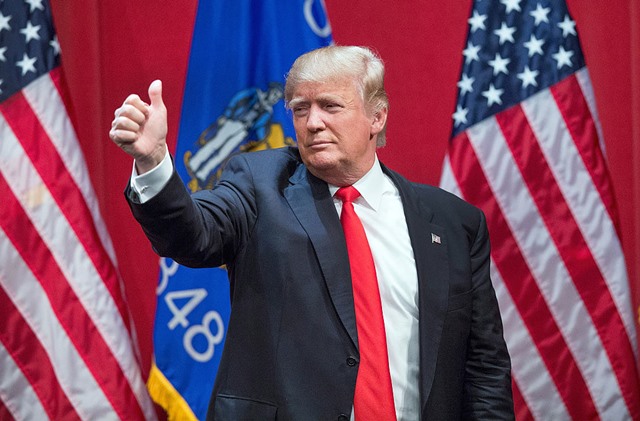
Though Republican presidential frontrunner Donald Trump has expressed opinions on many things, he is seemingly wary about taking a stance on arts and culture. He is the first presidential candidate this election season to respond to Washington Post blogger Alyssa Rosenberg’s recent questionnaire on these subjects, however.
Rosenberg’s questions, which she sent to five candidates (Hillary Clinton, Ted Cruz, John Kasich, Donald Trump, and Bernie Sanders), touch on important issues like the United States’ positions on defending artists and writers abused by repressive governments; policies to foster economic growth in the arts sector; government funding for the arts; and the candidate’s priorities for the Smithsonian Institution, which runs an extensive nationwide network of museums.
In most cases, Trump uncharacteristically declines to take a position, at times deferring to Congress, an institution he has often described as ineffectual.
For example, asked about whether he would promote arts education, he mostly defers to the states, though he does say that “a holistic education that includes literature and the arts is just as critical [as reading, writing, and math] to creating good citizens.”
Trump has shown he’s perfectly willing to talk about potential legislation, saying in a February speech that his administration would “open up our libel laws” so that politicians and candidates can sue newspapers that write about them critically. But when the Post asks about copyright law, Trump replies, “Your questions seem to imply that the President can make law. Even though some Presidents have acted that way, I will not.”
In other cases, he dodges the questions entirely. For example, when asked how the US would defend artists and writers persecuted abroad, he shifts to address only the US’s defense of American citizens. And when asked “How should the United States respond to Internet censorship by foreign governments?” he leaves the question blank.
For those interested in learning more about positions the candidates have actually taken, and what their past policies have been, the Americans for the Arts Action Fund has published a guide. Vermont Senator Bernie Sanders, for his part, has promised to be “an arts president.”